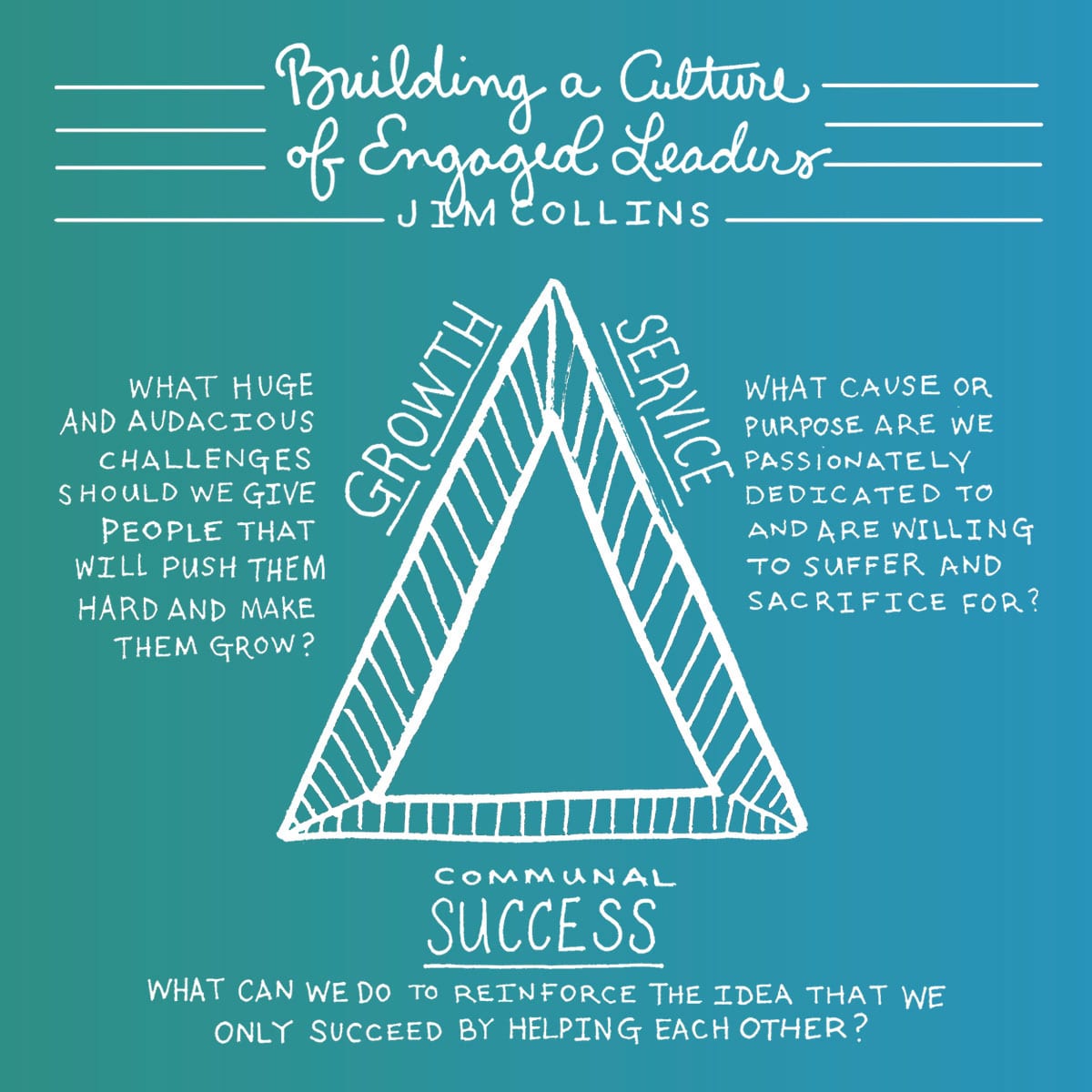
Building a culture of engaged leaders- Growth, service, and communal success.

Building a culture of engaged leaders- Growth, service, and communal success.
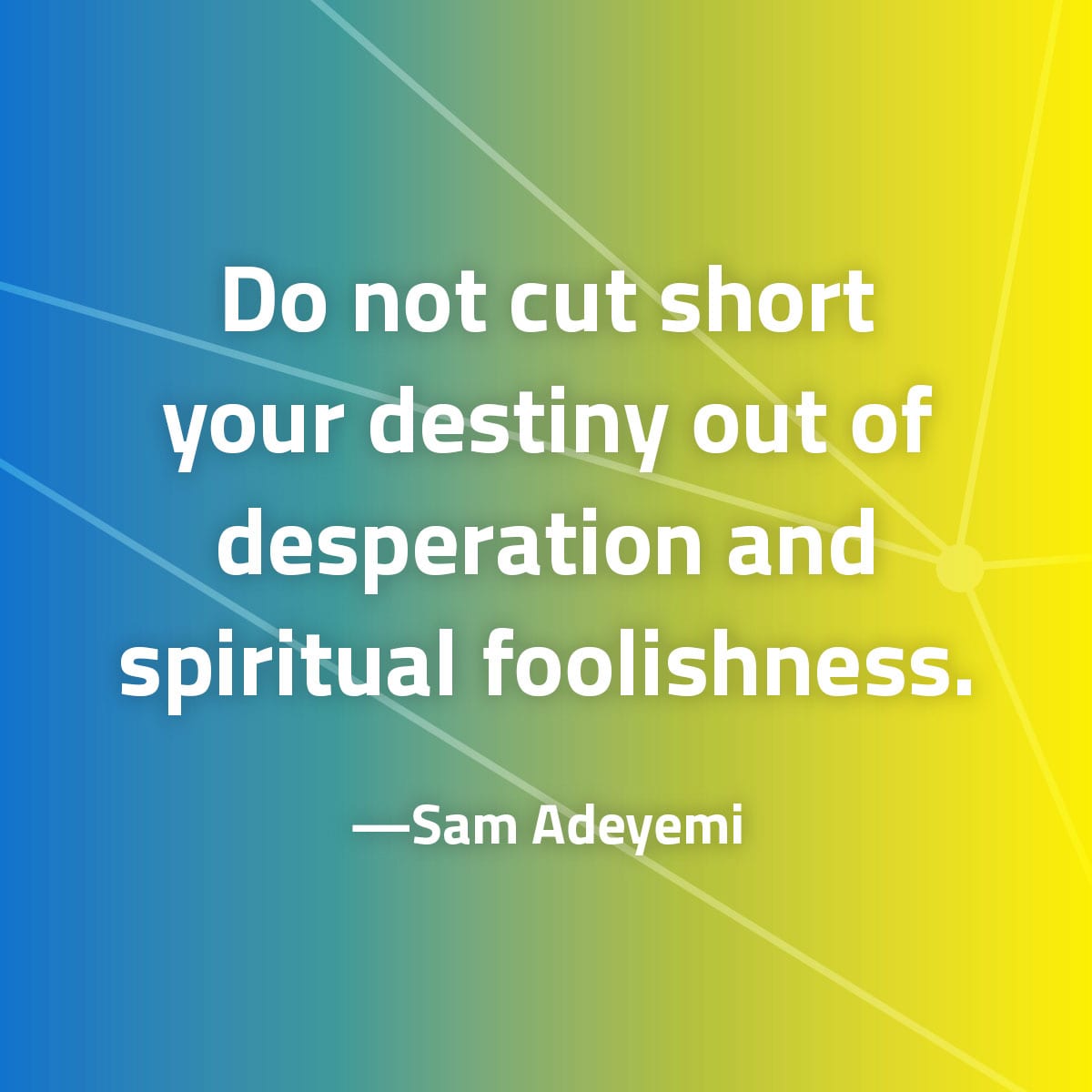
Don’t cut short your destiny out of desperation and spiritual foolishness.

 Amy Buggle, CEO of DLC Nurse & Learn in Jacksonville, Florida, first developed a passion for special needs children when her four-year old cousin with Down Syndrome passed away. “Our whole family was affected,” said Amy. “My mom worked as a volunteer at a children’s hospital in our town and I tagged along sometimes. As a young girl of 10, I was asked if I would like to volunteer at the hospital working with the children in the Cerebral Palsy program and I loved it. I did it every summer after that. The children were so special and had such sweet spirits that I was drawn to them and wanted to make their lives better.”
Amy Buggle, CEO of DLC Nurse & Learn in Jacksonville, Florida, first developed a passion for special needs children when her four-year old cousin with Down Syndrome passed away. “Our whole family was affected,” said Amy. “My mom worked as a volunteer at a children’s hospital in our town and I tagged along sometimes. As a young girl of 10, I was asked if I would like to volunteer at the hospital working with the children in the Cerebral Palsy program and I loved it. I did it every summer after that. The children were so special and had such sweet spirits that I was drawn to them and wanted to make their lives better.”
Having developed a passion for special needs children at such a young age, she knew she wanted to make it a part of her career. She went on to college for her degree in Special Education, and later founded DLC Nurse & Learn in 1989, where she’s been leading ever since.
Leading a Special Needs organization is tough work, so when Amy went through dark times in her leadership, there were days she just wanted to give up. “Many times I’ve felt DLC would not survive another school year, but the Summit gave me courage to trust God and move forward,” Amy shares. “Many of the talks have been specifically about problems we were having with staff or things I personally struggled with as a leader, like vulnerability and how to have the tough conversations. After 27 years in this work, burnout is inevitable; the Summit has reminded me to keep myself strong and take care of myself.”
What if Amy had quit? What would that mean for the children and the families served through DLC?
Amy explains that families with special needs children generally have limited support systems. And this is where DLC comes in. In connection with the church, DLC welcomes and serves these families, and shares the love of Jesus. “The main thing we give families is the feeling they can make it,” said Amy. “We give them the ability to go back to work or school, as many have lost jobs or had to drop out of school due to their child’s medical situations. We encourage them by giving them hope and practical tips on helping their children succeed. They no longer feel isolated and alone.”
Amy finds most of her joy in serving parents. “Everything I do helps to relieve parents of their pain and the burden they carry. I know this is God reaching out to them through me and ultimately through the church. I want my dream of serving special needs families through the church to spread. I would love for church preschools to become places that welcome children with special needs as Jesus would have.”
If Amy hadn’t attended the Summit, she would have given up on her calling during the dark days of her leadership. She brings her team with her now, and encourages others to attend so they can experience a boost in their leadership as well. “I started coming to the Summit every year and bringing staff with me. One year, I brought all my full time staff. It was amazing,” said Amy. “I’ve been attending every year for 11 years! It’s one of the best way to connect to God for two days with no other distractions. I am able to hear what He wants me to focus on. It also validates me when I’m not sure of something. I realize I’m doing a better job than I think I am.
“If you have never been to the Summit, you are missing the greatest opportunity to literally change your thinking for the better. The Summit gives me the spiritual and emotional boost I need to make it through the year. It also gives you practical tips in a fun and entertaining way that you might not get otherwise.”
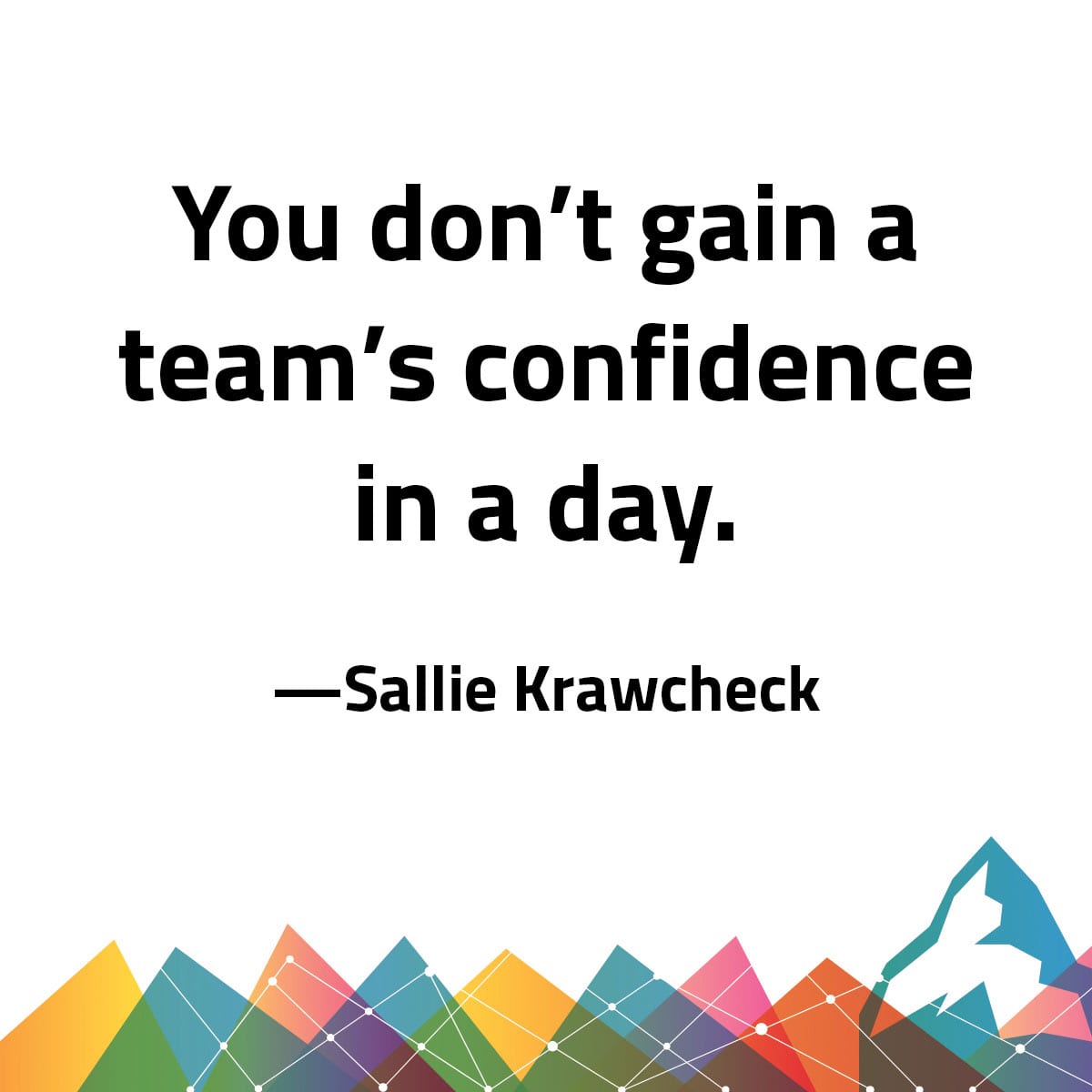
You don’t gain a team’s confidence in one day.
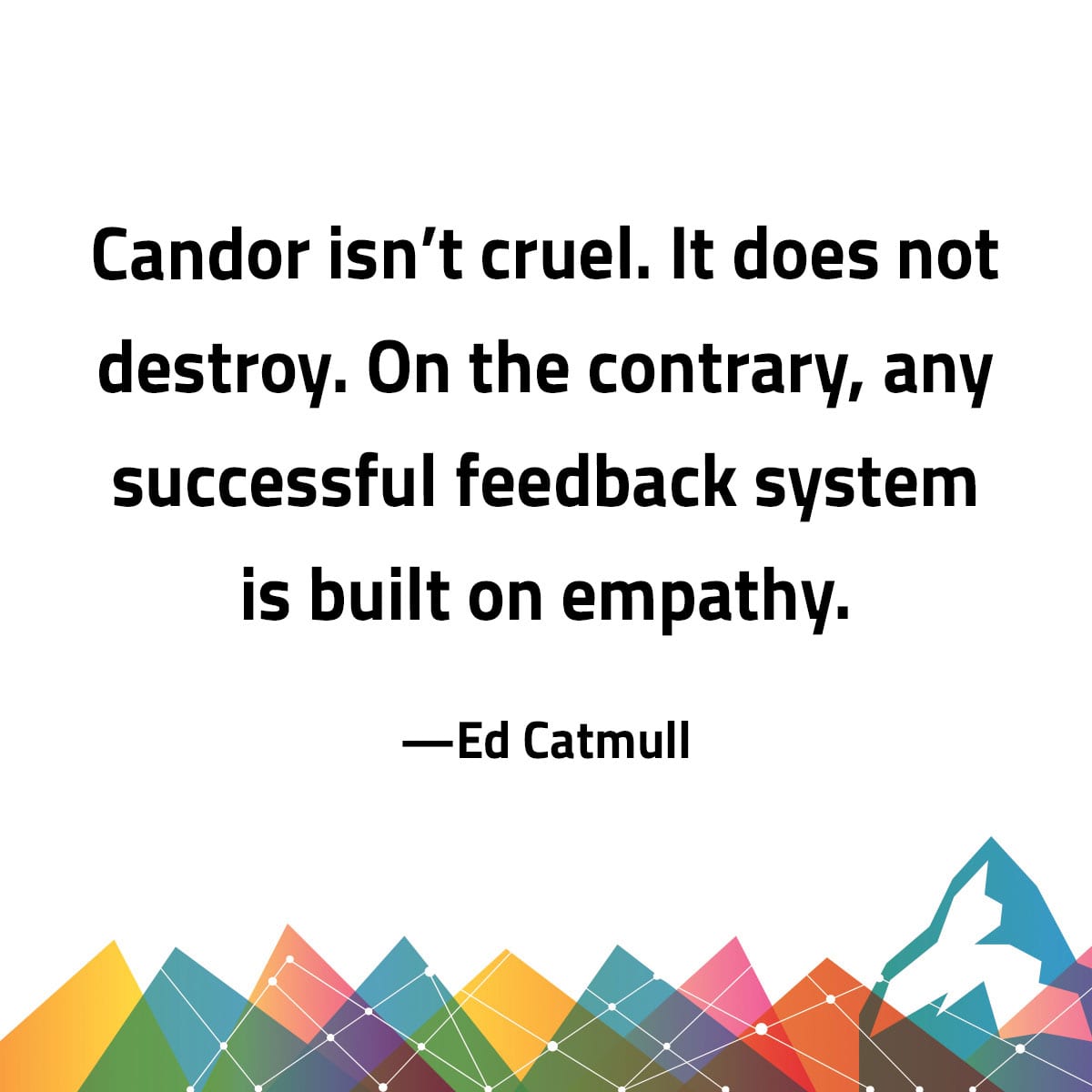
Candor isn’t cruel. It does not destroy. On the contrary, any successful feedback system is built on empathy.

 Ben Dubow experienced God’s redemption after he left his leadership in the church and turned his sights to a culinary venture. “Seven years ago, I totally shipwrecked my ministry and thought I was no longer useful or usable by God,” said Ben. “But I kept going to the Summit, and God kept calling me to the area of leadership and Kingdom impact. He was calling me to a holy discontent and a grander vision. The Leadership Summit is what has brought me back into the leadership game.”
Ben Dubow experienced God’s redemption after he left his leadership in the church and turned his sights to a culinary venture. “Seven years ago, I totally shipwrecked my ministry and thought I was no longer useful or usable by God,” said Ben. “But I kept going to the Summit, and God kept calling me to the area of leadership and Kingdom impact. He was calling me to a holy discontent and a grander vision. The Leadership Summit is what has brought me back into the leadership game.”
Craig Groeschel’s concept that “If you’re not dead, you’re not done” challenged Ben. “I’d benched myself from the church—probably for longer than God intended,” said Ben. God had plans for Ben’s culinary venture that would be used to serve the community.
After Ben left church work, he became an executive chef, and just recently, a chef at a local soup kitchen feeding about 100 people per day, and leading a culinary jobs training program. “We’re changing how we feed and love people. We’re focused on dignity, and wholesome food. I also started a culinary arts jobs training program,” Ben explains. “I feel like I have found my personal hedgehog! Hospitality and feeding people meets such a basic, universal need. It is a practical way to love people and to connect with them. When people are hungry, not much else matters to them in life. But when well-fed, they can dream, and have hope—they will share their own stories with you. There is something totally grace-filled about gathering around a table and sharing food together. To get to help people do that—whether in the restaurant or the soup kitchen—is totally a privilege.”
Ben continues to learn about the power of God’s grace and redemption every day. “Just recently, I was installed as a new part-time, bi-vocational, lead co-pastor. Now, between running the soup kitchen, pantry and jobs-training program full time, plus leading and teaching in the church part time, I feel redemption, restoration and a renewed calling,” he said. “God’s calling is fresh and I have found a place where ministry is joyful, balanced and healthy.”
Ben is a different leader from what he used to be. “As a younger leader, I was caught up in ego and insecurity and fear of failure,” he said. “Today, I lead much more freely and in response to the Spirit’s promptings. My leadership is more people-focused than project-focused. I am still driven and focused and hard-working, but I don’t sweat the small stuff nearly as much. I hold onto my ministry with a much looser hand, trusting that ultimately it is His, not mine.”
The Summit has been used to remind Ben of God’s call on his life as a leader, even through failure. God is a God of redemption, and making things new. Ben is a new, transformed leader because of the Summit. “I have made the Summit a priority in my schedule and a non-negotiable. So when the Summit was available near me, it was a no-brainer to gather some friends and go!” Ben said. “Literally every Summit I go to, I get at least one or two very practical take-aways that prove to be transformative in my leadership. It is as if sessions were created just for me. It has been the vision and the challenge to live out of our Holy Discontents and seek our grander vision. Early on, the Summit was mostly about skill building for me and getting a fresh breath of vision. Now, it is more about character-building—and the same need for that fresh breath of vision, challenge and encouragement.”
Read more about Ben’s work in the news:
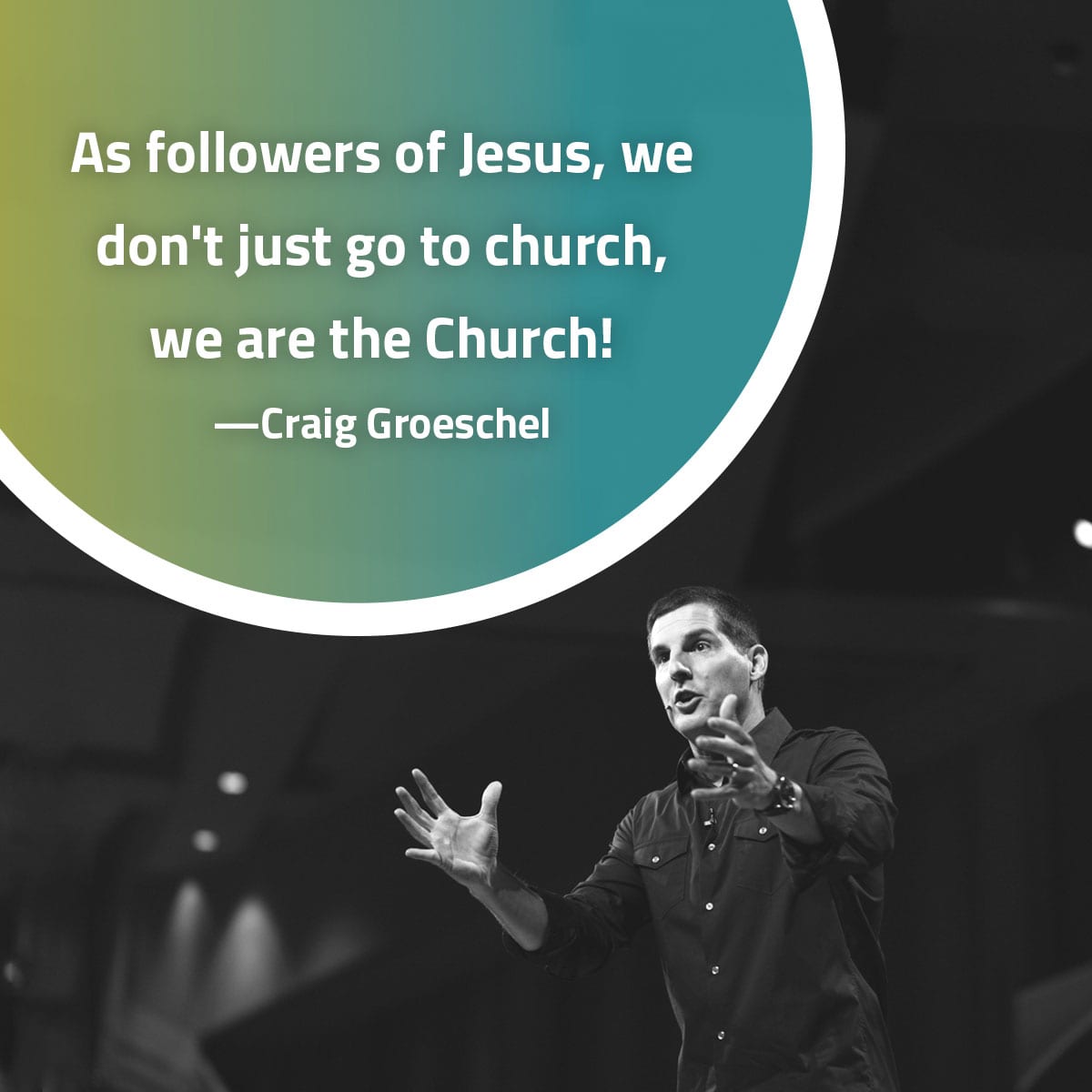
As followers of Jesus, we don’t just go to church, we are the Church.

What can it really look like to empower employees within an organization? Horst Schulze, CEO of Capella Hotel Group, shares the importance of truly empowering employees.
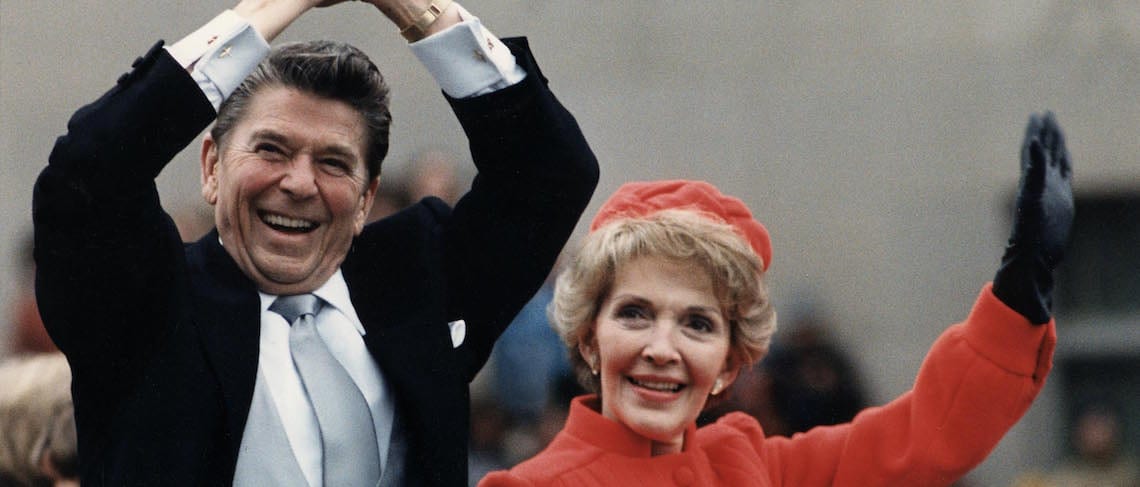
Today, the world pays homage to Nancy Reagan. David Gergen (GLS 2009), Communications Director in the Reagan White House, had a unique vantage point to observe the relationship between the 40th U.S. president and his wife. In his Summit interview, Gergen described Ronald Reagan’s greatest leadership strength to be his off-the-charts emotional intelligence. This article shows how Nancy’s role as “first friend” enabled Reagan’s success as a leader.
(CNN) Some years ago, I asked an eminent presidential historian, David Herbert Donald, what asset a president needs most. He thought briefly and answered, “A friend.”
That response has resonated with me ever since and instantly recurred Sunday when sad news arrived of Nancy Reagan’s death. In the Reagan White House, Mrs. Reagan was always more than first lady. She was also “first friend.”
History has shown that presidents need a close-in confidant — someone whose relationship stretches back in time, who is devoted to the president’s well-being, talks over his most intimate dreams and fears, keeps conversations secret, and once in a while, steps in to guide an errant president to a higher path. A confidant can be a second pair of eyes, seeing what a leader doesn’t.
Woodrow Wilson had his Colonel House, Franklin Roosevelt had his Louis Howe and Harry Hopkins. When I first joined the Clinton White House some six months into Bill Clinton’s first term, I discovered that Vernon Jordan, from his perch outside the White House, effectively played that role. Whenever we needed help inside, I recommended we invite in Jordan. In the case of President Barack Obama, the outside world senses that Valerie Jarrett is his closest staff confidante.
Nancy Reagan’s death has reminded the world that she and her “Ronnie” enjoyed one of the great love stories of modern politics. They met in the late 1940s when she was a respected Hollywood actress, but he was at a low point. His movie career was stalling out, and his first wife, Jane Wyman, had walked out on him, leaving him desolate.
As biographer Lou Cannon has described better than anyone else, Reagan’s marriage to Nancy in 1952 and his winning of a contract to host TV’s “General Electric Theater” changed the course of history. The new couple began a magical journey, one that gave him a fresh start in life and drew him away from the liberalism of Hollywood to become a rising star of the conservative movement. Fourteen years after they were married, he was the governor of California, with a beaming Nancy always at his side.
To those of us privileged to work for President Reagan in the 1980s, it was obvious that they remained deeply in love. Their favorite evenings were spent alone together upstairs at the residence. Woe be it to a staff member who tried to intrude.
In remembrances of Nancy, much has also been said of how influential she was and how she protected him behind the scenes. Both observations are true. She didn’t bring a policy agenda with her to the White House and rarely got involved in policy discussions, in the manner of Rosalynn Carter and Hillary Clinton. But after Reagan was shot, she did help to talk him into embracing the Brady Bill, a major gun control initiative much reviled by the right. And later on, she was a persuasive voice in favor of arms control with the Soviets, another initiative the right denounced.
Nancy Reagan was also the enforcer, fiercely protecting her husband’s energy and his image. I first encountered that side of her when drafted to prepare his debate briefing books for his 1980 fall campaign. Our team labored to produce a series of policy papers and memos, but when I proudly presented them to him, she looked daggers at me. It was immediately clear that we had loaded him down with way too much stuff. I never made that dumb mistake again.
When an adviser screwed up, the President was generally forgiving and hated to fire anyone. Nancy didn’t mind lowering the hammer, engineering the dismissal of a top political strategist such as John Sears in the 1980 campaign and famously in Reagan’s second term, his chief of staff, Don Regan. Nancy was irritated that Regan seemed to insert himself into every photo of the President, and after Regan failed to stop the Iran-Contra scandal, she forced him to the exits.
All of this is well understood by historians of the Reagan presidency. What no one has fully penetrated is the veil the two drew around themselves as a couple. They were extremely private, certainly to staff and apparently to children. Biographers have tried to understand their emotional lives but have largely failed, most notably Edmund Morris.
I worked down the hall from the Oval Office the first three years of Reagan’s presidency. James Baker, Michael Deaver and Edwin Meese — “the triumvirate” — were closer in than I was. But I don’t think any of us, even Deaver who was like a son to them, fully fathomed their relationship. What was obvious was how much he depended upon her as his anchor. She was the one to whom he confided his most intimate thoughts; she was the refuge where he could find emotional nourishment.
In one of the most insightful books about his presidency, “What I Saw at the Revolution: A Political Life in the Reagan Era,” Peggy Noonan turns to an academic study of adult children of alcoholics. It finds that such adults have trouble with intimate relationships because they have lacked reliable, consistent love from one or both alcoholic parents.
One senses that because Nancy provided such consistent, unconditional love, her husband discovered in her what had been missing all his life. As he said in letters to her, she made him feel complete. Ultimately, as he found, the best lovers are also best friends. Certainly Nancy was for her “Ronnie.”
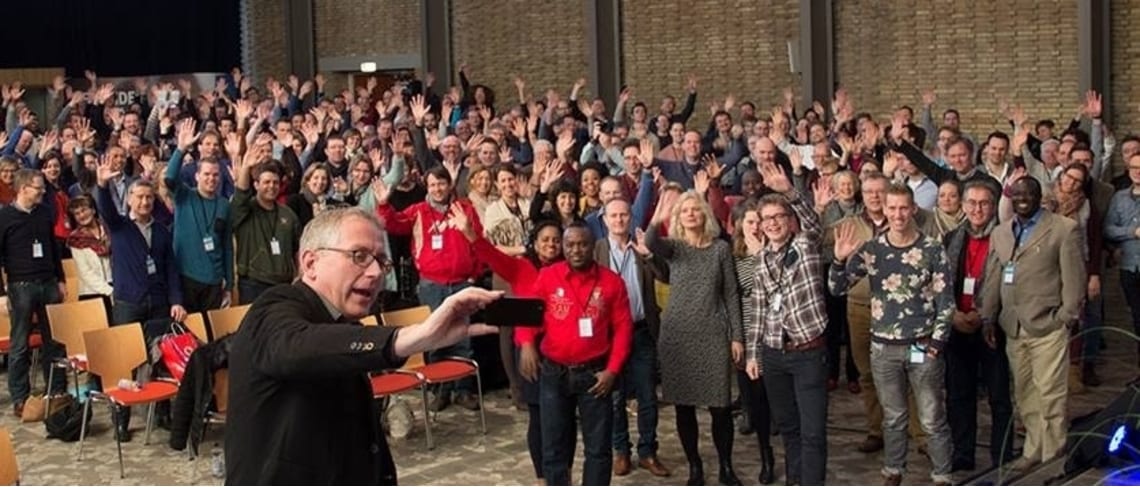
“Nine years ago I visited the GLS for the first time as team leader of the multimedia team in our church. The message I heard then touched me in such a way that from that moment on I started to visit the GLS every year. The GLS plays an important role in my life. Through the years I am so fired up by the speakers. I continue developing myself. Together with a co-leader, I started a group for Christian leaders where we pray together and watch the GLS Team Edition. Even after nine years, the GLS is still not boring. There are always fresh insights. As a leader, your job is never ‘done’; you have to continue developing.” – GLS Attendee, Eindhoven, Netherlands
 “The best compliment to the GLS is that my wife noticed a change the moment I walked through the door. The lessons showed me that first and foremost my responsibility as a leader is at home. My passion and service will have to be noticed by my wife and children first; how can I serve the body of Christ if I have not brought my family to freedom?! After these two days I know again how it feels to experience spiritual breakthroughs. God sets us free, and in that hope we live! The time has come to allow ‘silly ideas’ into my life again, to proclaim them in faith, and step back to watch my Heavenly Father’s work in the name of Jesus Christ: in my family, church and everywhere our feet may go… I am very grateful to have been part of the GLS 2015 in Eindhoven” – GLS Attendee, Eindhoven, Netherlands
“The best compliment to the GLS is that my wife noticed a change the moment I walked through the door. The lessons showed me that first and foremost my responsibility as a leader is at home. My passion and service will have to be noticed by my wife and children first; how can I serve the body of Christ if I have not brought my family to freedom?! After these two days I know again how it feels to experience spiritual breakthroughs. God sets us free, and in that hope we live! The time has come to allow ‘silly ideas’ into my life again, to proclaim them in faith, and step back to watch my Heavenly Father’s work in the name of Jesus Christ: in my family, church and everywhere our feet may go… I am very grateful to have been part of the GLS 2015 in Eindhoven” – GLS Attendee, Eindhoven, Netherlands
“We welcome and encourage comments on this site. There may be some instances where comments will need to be edited or removed, such as:
If you have any questions on the commenting policy, please let us know at heretoserve@globalleadership.org”
Recent Comments